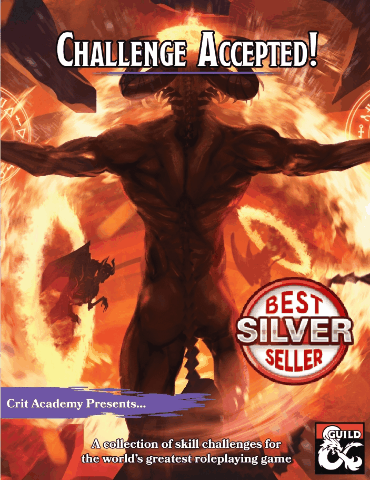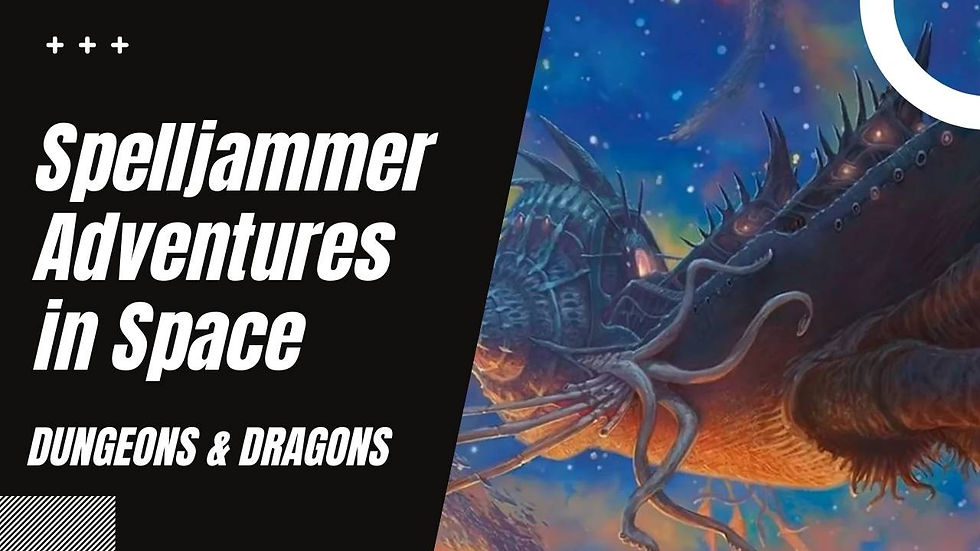D&D: Monsters of the Multiverse Review
- Justin Handlin

- Feb 5, 2022
- 8 min read
Updated: Feb 20, 2022
Wizards of the Coast has released its newest rule book for the world’s greatest roleplaying game, Dungeons & Dragons. Designed as a way of bringing together player races and monsters that have been scattered across many different published books, Monsters of the Multiverse is like a one-stop shop for all character options and monsters that aren’t in the core books. Join us as we walk through it live on the show!
Inside Monsters of the Multiverse
The new Mordenkainen Presents: Monsters of the Multiverse book gives Dungeon Masters access to more than 250 monsters from myriad published adventures, as well as fresh new monsters to terrorize your fantasy world. More than that, it will contain over 30 updated player character races from various sources including Volo’s Guide to Monsters, The Tortle Package, Eberron: Rising from the Last War, and Mordenkainen’s Tome of Foes. I was happy to see it will include the new Fairy and Harengon from the Wild Beyond the Witchlight, as it is such a fresh release. This is great as game design mechanics have changed and been redesigned over the life of 5th Edition. This often left some races feeling weaker than others. A good rebalancing was needed to ensure they are all appealing and mechanically balanced in power.
Chapter 1: “Fantastical Races,” presents over 30 race options for player characters, complementing the options in the Player’s Handbook and other D&D books. These races debuted elsewhere and appeared all together for the first time here, each of them revised to fit into the current state of the game.
Inside of Monsters of the Multiverse contains versions of character races that do not include specific ability scores increases. Instead, the players can assign their ability score increases to whichever traits they want, regardless of race. This new design first arrived in Tasha’s Cauldron of Everything. Some players have their reservations about this change, but overall it has been well received. At its core it allows players to break some of the more traditional builds and expand character creation in a new and interesting way. After all, no two people are the same. Even if they are the same race.
Chapter 2: “Bestiary,” contains over 250 monsters and NPCs, each one represented by a stat block and story text. When you’re preparing to run an adventure as the DM, consider sprinkling these creatures into your games, mixing them with the monsters and NPCs from the Monster Manual. The creatures in this chapter fit seamlessly with those you use from other D&D books.
Make sure to subscribe to our newsletter so we can help you on your future adventures. Newsletter subscribers are also entered to win cool prizes each and every week. Check out our fellowship members for more great content. Visit our Youtube channel for our show episodes, actual play episodes, and our tips & tricks videos. Support us on Patreon to get weekly Dungeons and Dragons loot!
Monster Stat block Changes
Much like the popular Xanathar’s Guide to Everything and Tasha’s Cauldron of Everything, it will serve as a companion piece to the ruleset books that have been released for 5th Edition D&D. They are even offering a gift set that bundles these books with the new Mordenkainen Presents: Monsters of the Multiverse. Just like its bundle counterparts, Monsters of the Multiverse includes some significant design changes to its monsters, from lore to stat blocks. Most notable is the fact that much of the monster lore has been altered or removed which would indicate they belong to a specific setting. This is great for Dungeon Masters, as many run games in worlds of their own creation anyway. The mechanic changes are ones that I am particularly happy with. The new designs make the monsters more streamlined and simpler to run. This is most notable with spellcasting monsters. They are lightening the load on spell lists for the DM to constantly flip back and forth through books to get the details. Instead, they’ve moved the more primary spells to the action list. This means less thought process is wasted deciding which spell that monster might use in a given situation. Now, this isn’t to say that there aren’t options, but now monsters are more likely to play similarly regardless of the Dungeon Master running the game. As a DM who runs many monsters, I am happy for the reprieve personally.
Chapter 3: “Monster Lists,” makes it easy for you to find the right stat blocks for your adventures. This appendix lists the book’s monsters and NPCs by creature type, challenge rating, and environment.
Mordenkainen Presents: Monsters of the Multiverse has been released as part of the D&D Rules Expansion Gift Set - alongside copies of Xanathar’s Guide to Everything and Tasha’s Cauldron of Everything - as well as separately, both in print and digitally, on May 17th.
Unearthed Tips and Tricks
Character Concept: Dagger of Clay, Female Tabaxi
Description: She is a woman of bearing and well-nourished. She tends to wear a large tan jacket. She wears a deerstalker hat to hide her balding.
Personality: She is shy and timid. She has not had much interaction with people and is skittish around them. She lacks moral complications. She does what she is told to by employers but not much else. She spends her money on whatever she fancies at the time.
History: She was born into a rich family. She went to a religious school and was inspired by the priests there in charitable deeds. She's also a talented spice merchant in spite of her timidness but doesn't like to broadcast it.
Motivation: Balancing her hectic life and new spice merchant responsibilities is difficult, and she has decided she is irredeemable.
Monster Variant: Yahkon
Origin: Orc
Lost Features: aggressive, greataxe
New Features:
Stats Wisdom becomes 14
Skills: Medicine +4, Nature +4, Perception +4, Persuasion +2, Survival +4
Language: Common, Druidic, Sylvan
Magic Resistance. The yahkon has advantage on saving throws against spells and other magical effects.
Speak with Beasts and Plants. The yahkon can communicate with beasts and plants as if they shared a language.
Nature’s Sanctuary. Creatures of the natural world sense the yahkon’s connection to nature and become hesitant to attack it. When a beast or plant creature attacks the yahkon, that creature must make a DC 12 Wisdom saving throw. On a failed save, the creature must choose a different target, or the attack automatically misses. On a successful save, the creature is immune to this effect for 24 hours.
The creature is aware of this effect before it attacks the yahkon.
Powerful Build. The yahkon counts as one size larger when determining its carrying capacity and the weight it can push, drag, or lift.
Actions
Mark of the Hunter. The yahkon can use a bonus action to mystically make a creature within 120 feet as its quarry. For 1 hour the yahkon deals an extra 2 (1d4) damage to a target whenever it hits with a weapon attack. Additionally, the yahkon has advantage on any Wisdom (Perception) or Wisdom (Survival) checks it makes to find it. If the target drops to 0 hit points or if the yahkon targets another creature, this effect ends.
Reactions.
Briarthorn Armor. While the yahkon wears its tribal armor, the thorny bark armor can damage attackers. When a creature grapples or is grappled by the yahkon or if it hits it with a melee attack, the yahkon can use its reaction to deal 2 (1d4) piercing damage.
When the characters enter a large city, they stumble across a moderately sized shop that sells quality items and even some with magical properties. Raymond Dale, a spy, is owner and operator of the establishment. When entering, a character with a successful DC 17 passive Wisdom (Perception) check spots some etchings well hidden on the hinge of the entryway. A character with thieves’ cant spots it as a general warning to avoid doing business in the store.
Inside the shop sells items at ridiculously low prices. Most items are easily half the price of market value. A character who succeeds on a DC 15 Wisdom (Insight) or has the Guild Artisan background, can quickly deduce that the shop should barely stay afloat at such margins. A character that succeeds on a DC 15 Intelligence (Investigation) check spots a collection of small jewels in the sealing. A successful DC 19 Arcana check or the detect magic spell reveals the true nature of the jewels. The arcane instruments are used for scrying.
The reality is that the shop doesn’t trade invaluable equipment, but instead in information on its customers. A clan of vampires uses the shop and the merchant as a source of choosing who is best-feeding stock and keeps their business dealings in the dark.
Magic Item: Battle Standard of Celestial Might
Wondrous item, very rare (requires attunement)
This holy-forged battle standard is made of celestial steel and fitted with a small, unopened gilded crystal orb containing the feather of a solar’s wings. The orb has AC 19, 10 hit points, and immunity to all types of damage except force damage. If the feather is destroyed or released, the banner becomes a mundane item.
While you hold this banner, your weapon attacks and those of all allied creatures within 300 feet of you count as magical for the purposes of overcoming damage immunities and resistances. Additionally, each weapon deals an additional 1d4 radiant damage.
Dungeon Master Tip: Prep the World, Not the Plan
A common theme of newer Dungeon Masters is spending time prepping based on what they expect the player characters to do. This is a good thing to consider when prepping, but don’t spend much time on it. Time and time again players do the unexpected. Trying to predict that is like winning the lottery. Sure it happens, but you’re more likely to fail.
So, instead, spend your time preparing the world around them. Flesh out the locations, NPCs, current political climate, or events that are happening around them. By spending more time on the environment that the characters spend their time in, you have a good solid idea of what's going on with, or without the characters. This significantly builds confidence when it comes to running the game when you are forced to improvise from disjointed or unexpected character decisions. Focus on what you can control and less on what you can’t. We design the world and have control over it, we don’t control the players and their characters.
Player Tip: Zen Zed Shuffle
During our Clash of Classes' second match one of the players delivered a fantastic combo. The circle of the moon druid has an extremely versatile collection of spells and features. But the clever use of wildshape and conjure animals makes for a powerful misdirection and ambushing technique.
RPG Phatloot Giveaway: The Goblin Bathwater Incident by Marius Brunner

An alchemist, a fisher, and a goblin walk into a bar...
The Goblin Bathwater Incident is an introductory adventure centered on a rural town and its many forms of intrigue and insanity. The players have to investigate ancient caves, solve goblin immigration issues, and find a resolution for the insurmountable discord between the town's political figures.
Winner: pcdorney
Didn’t win? Np, head to www.critacademy.com and subscribe for your chance to win!
Thank you for reading our blog. If you enjoy the content and want to support us, visit our store or follow us on social media, join us on discord, youtube, and leave us a review.
Keep your blades sharp and spells prepared heroes!
*Crit Academy is an Affiliate of Amazon, DMsguild and DriveThruRPG*
























Comments